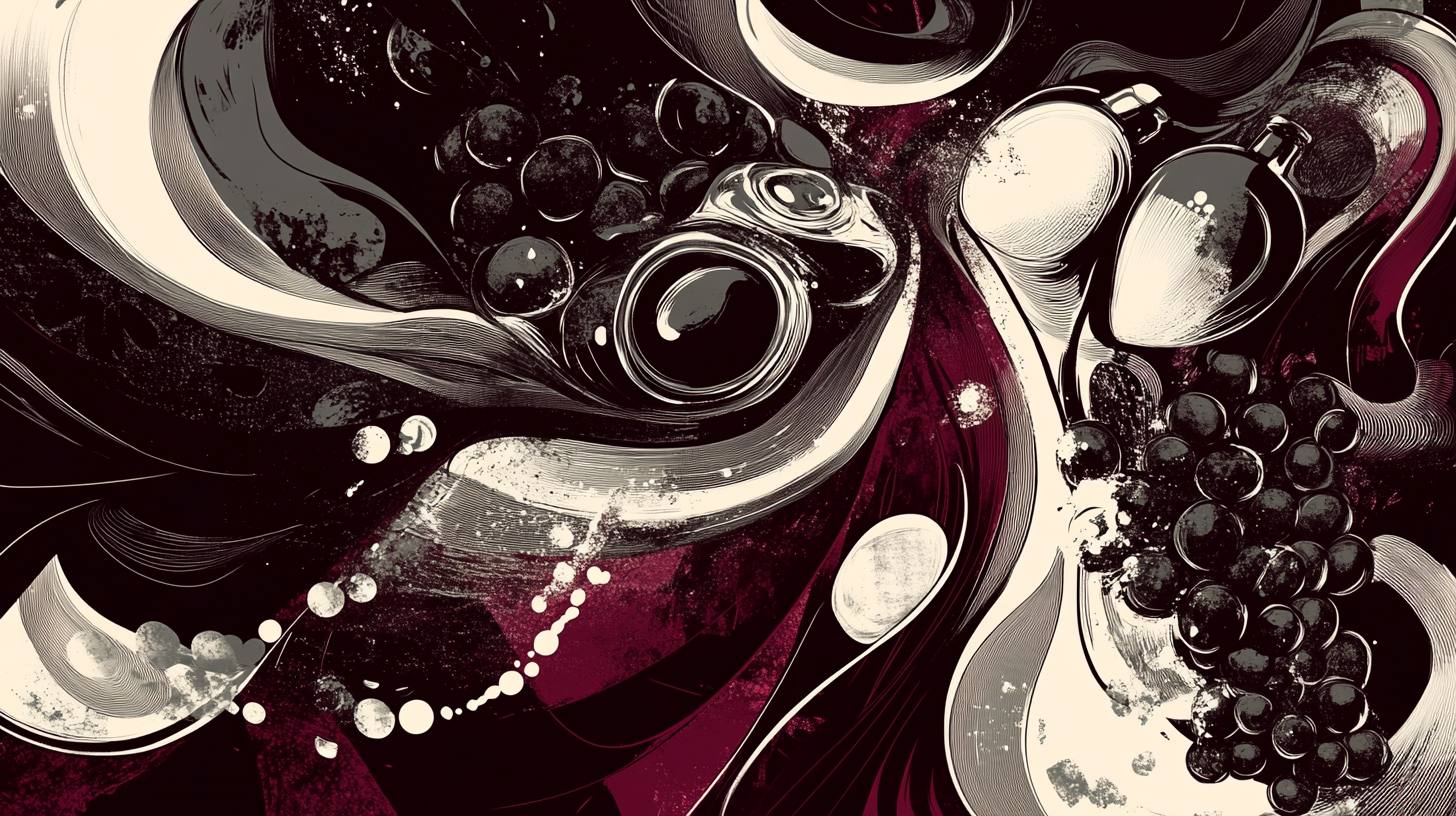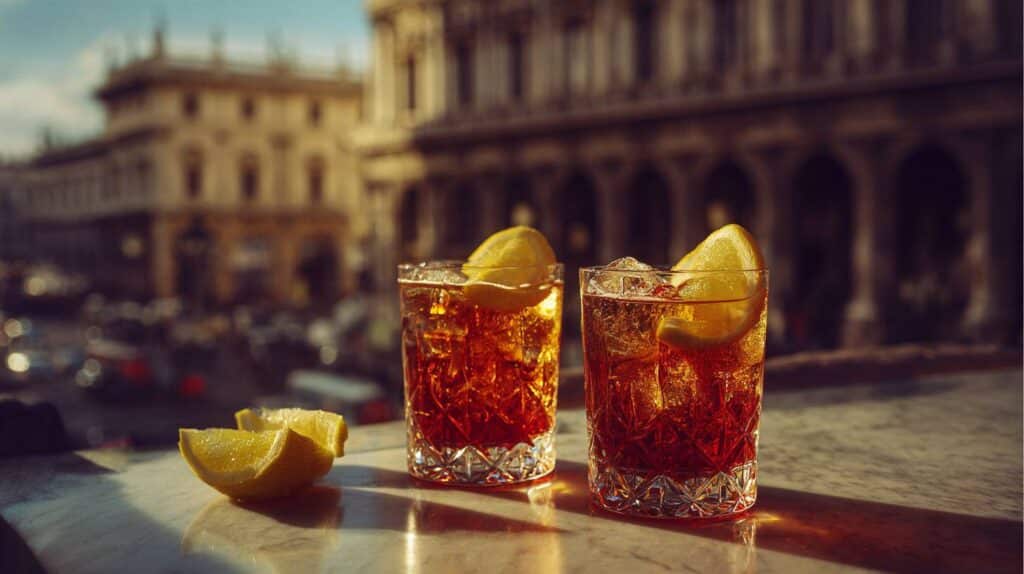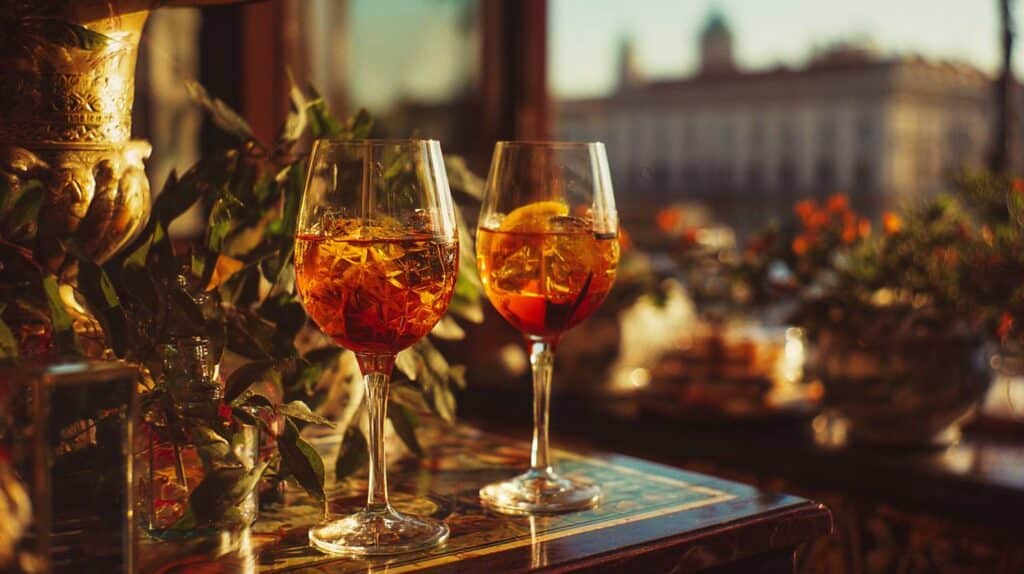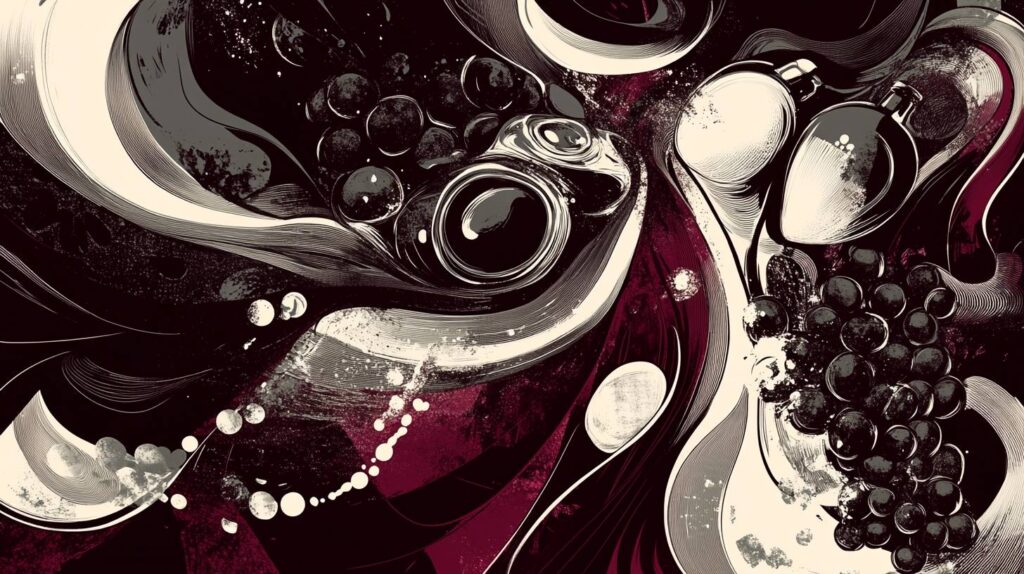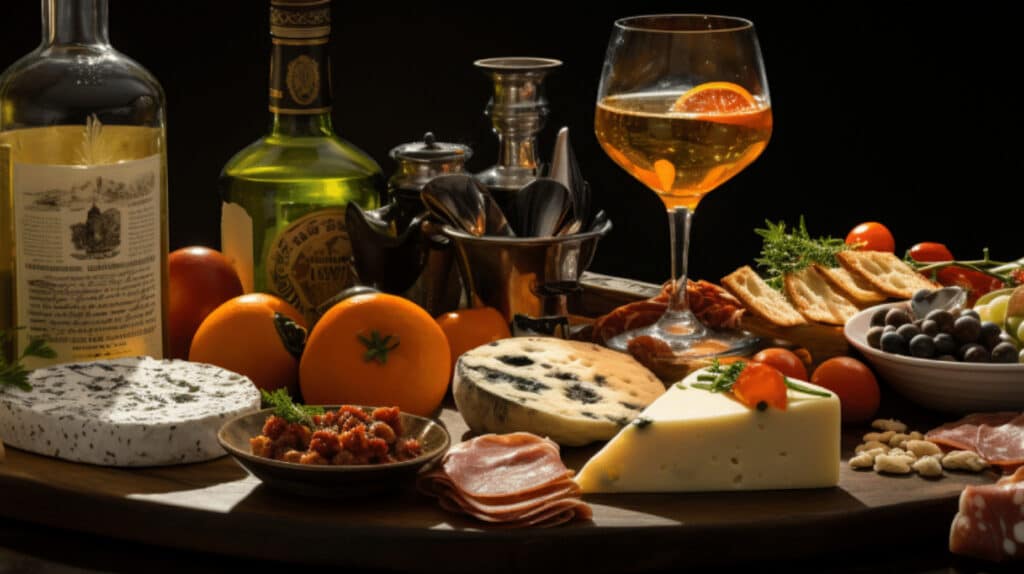In recent years, consumer awareness and demand for eco-friendly, ethically sourced products have surged, touching nearly every industry, including that of fine spirits like vermouth.
Across Italy, a growing number of producers are pioneering sustainable practices that are redefining the category.
This shift isn’t just about meeting market demands; it’s a commitment to environmental responsibility and a dedication to crafting high-quality, terroir-focused spirits.
We embarked on a journey to uncover the stories behind these trailblazing sustainable Vermouth makers, exploring how they are reducing their environmental impact from vine to bottle.
Sustainable Production Practices
At the forefront of the sustainable Vermouth movement are producers who have transformed every step of their winemaking process.
By choosing organic and biodynamic methods in their vineyards, they aim to protect soil health, reduce water use, and eliminate reliance on synthetic pesticides and fertilizers.
Such methods align the production of vermouth with the natural rhythms of the ecosystem, preserving biodiversity and enhancing the vines’ resilience.
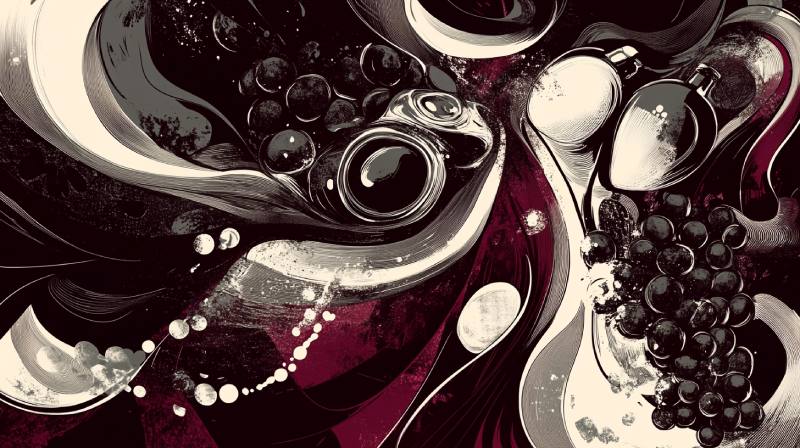
“It was important for us to take a hard look at every step of our production process and find ways to minimize our carbon footprint,” explains Marco Giovanetti, owner of Antica Distilleria Quaglia in Piedmont. “This means focusing on renewable energy, water conservation, and waste reduction.”
In Sicily, Tenute Terre del Vento stands as a model of environmental stewardship. This vineyard relies on renewable energy sources and promotes biodiversity through its crops, embracing practices that go beyond organic standards. Their ‘Sicily Vermouth’ exemplifies how these practices impact flavor, creating a vermouth that reflects the unique terroir of the region. Many producers are also dedicated to sourcing botanicals from local, organic suppliers, which not only enhances transparency but also supports regional biodiversity and small-scale agriculture.
“Sourcing our botanicals locally has been a game-changer for us,” says Elena Casadei, master distiller at Torino Distillati. “Not only does it cut down on our carbon footprint, but we’re able to showcase the incredible array of aromatic herbs and flowers that thrive in our territory.”



Measuring Environmental Impact
Quantifying the environmental benefits of sustainable practices is no simple task, yet several Italian vermouth producers have embraced lifecycle assessments to do just that. These comprehensive analyses assess the environmental impact of each production stage, from grape cultivation to final packaging. This approach reveals a detailed picture of resource use, including water consumption and greenhouse gas emissions, providing producers with the data to refine and improve their standards in ethical vermouth production.
Our analysis showed that by converting to organic viticulture and implementing recycling programs, we were able to reduce our overall carbon footprint by over 30% compared to conventional Vermouth production. This is no small feat and underscores the impact sustainable methods can have on reducing carbon emissions, preserving resources, and enhancing long-term sustainability in wine and spirit production.
Some of Italy’s larger producers, such as Martini, have achieved substantial progress in sustainable practices by having their entire supply chain certified under the Equalitas standard. This demonstrates a robust, verifiable commitment to sustainable farming, winemaking, and distillation.
Botanicals: Organic vs. Traditional
A defining feature of vermouth is its blend of botanicals, which traditionally includes ingredients sourced from around the world. However, sustainable vermouth producers in Italy are prioritizing local, organic botanicals that not only reduce environmental impact but also contribute to terroir-driven flavor profiles. Organic botanicals, when grown without synthetic chemicals, offer purer, more nuanced flavors.
“The difference in the botanical aromas and textures is quite remarkable when you compare our organic infusions to those made with traditional methods,” observes master distiller Elena Casadei of Torino Distillati. “There’s a vibrancy and purity of flavor that you just can’t achieve without pristine raw materials.”
In Tuscany, twelve producers have signed an Ethical Charter for Tuscan Vermouth, a regional commitment to sustainable vermouth production that emphasizes local wine sourcing and respect for regional identity. This ensures that the botanicals used in their Vermouths are not only organic, but also deeply connected to the Tuscan terroir.
Key botanicals such as sage, wormwood, chamomile, and juniper not only bring unique flavors but also enhance the ecological value of the production process. For example, organic wormwood contributes an earthy, intense bitterness, while locally sourced sage adds a peppery freshness that enhances the overall tasting experience. By choosing organic options, these producers reinforce their commitment to preserving Italy’s natural heritage, supporting sustainable agriculture, and crafting vermouths that are both flavorful and environmentally sound.

Blind Tasting: Sustainable vs. Conventional
To put these claims to the test, we organized a blind tasting that pitted sustainable Vermouth expressions against their more conventional counterparts. A panel of industry experts evaluated the samples on criteria like aroma, flavor balance, and overall quality.
The results were striking – in nearly every case, the sustainable Vermouths were scored significantly higher by the tasters. “The difference in freshness and complexity was immediately apparent,” commented Alessandro Palazzi, head bartender at Duke’s Hotel in London. “These sustainable bottlings have raised the bar for the entire category.”
One standout was the ‘Sicily Vermouth’ from Tenute Terre del Vento, which impressed the panel with its vibrant citrus and herbal notes, as well as its smooth, well-integrated bitterness. This is a Vermouth that truly captures the essence of its terroir. It’s an example of how sustainable practices can translate into superior quality.
Other sustainable Vermouths that received high praise included the Antica Distilleria Quaglia expression, with its pronounced floral aromas and complex, layered flavor profile, which was praised for its balance and drinkability.
It is fascinating to see how the sustainable Vermouths outperformed their conventional counterparts across the board. This is a clear signal that the future of Vermouth lies in embracing environmentally-friendly production methods.
Certifications and Standards
To formalize their commitment to sustainability, some forward-thinking Vermouth producers have pursued third-party certifications. This includes organic, biodynamic, and carbon-neutral accreditations that hold them accountable to rigorous environmental standards.
“Gaining these certifications wasn’t easy, but it was important to us to have that external validation,” says Nicola Pavan of Pavan Vermouth in the Veneto region. “It gives our customers the confidence that we’re walking the walk when it comes to sustainable production.”
Alongside individual certifications, national programs like VIVA and Equalitas play a crucial role in setting industry benchmarks for sustainability and real commitment to ethical vermouth production.
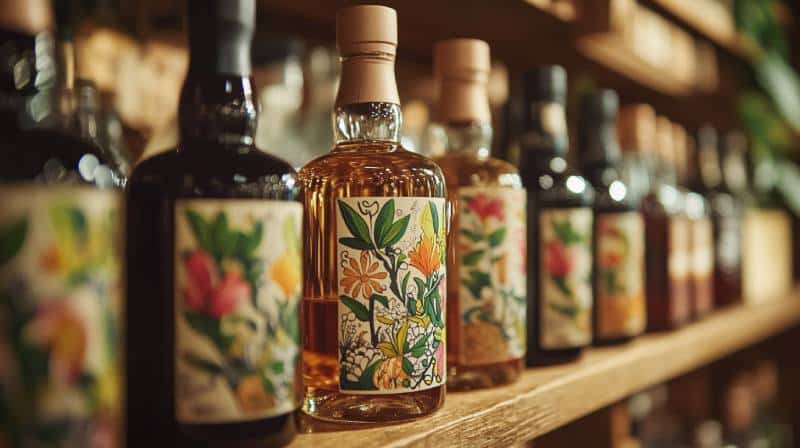
Equalitas, created by Federdoc, sets a standard for sustainable winemaking by examining environmental, social, and economic dimensions throughout the production chain. Producers must demonstrate their commitment to reducing greenhouse gas emissions, conserving water and biodiversity, and supporting their local communities.
Likewise, the VIVA – Sustainable Wine program, endorsed by the Italian Ministry for the Environment, promotes sustainability within Italian viticulture, evaluating aspects like water and soil management, energy efficiency, and waste reduction.
Together, these programs enable Italian vermouth producers to collaborate and set high standards for quality and environmental stewardship, elevating Italy’s position as a leader in sustainable winemaking.
Artisanal and Organic Vermouth Producers in Italy
Several Italian producers are leading the charge in artisanal and organic vermouth production:
- Mancino Vermouth: Crafted by renowned bartender Giancarlo Mancino, this range of superior quality artisanal vermouths is made from a selection of about forty herbs and spices combined with the finest Italian wines. Mancino Vermouth emphasizes traditional methods and high-quality ingredients, offering expressions like Secco, Rosso Amaranto, Bianco Ambrato, and Chinato.
- Senera Vermouth: Originating from the Sienese hills, Senera Vermouth is produced in a small artisanal distillery at Fattoria Sella Nera. This vermouth is prepared only with premium natural ingredients, blending ancient knowledge with new flavors to create an excellent product. Senera offers both Rosso and Rosato vermouths, each showcasing the unique characteristics of the Tuscan terroir.
- Karminia Vermouth: Produced in Asti, Piedmont, Karminia Organic Vermouth di Torino Rosso Superiore is made exclusively from Barbera d’Asti DOCG. This small-batch artisanal production involves slow botanical infusion and cold filtration, resulting in a vermouth that certified organic by Ecogruppo Italia. Karminia’s commitment to organic principles not only reduces environmental impact but also enhances the unique flavors derived from the local Barbera grapes and carefully selected botanicals.
- Del Professore Vermouth: Crafted in Rome, Del Professore’s vermouths are known for their distinct flavor profiles, using botanicals sourced locally and organically where possible. Their Classico, Rosso, and Bianco vermouths are made in the traditional “Vermouth di Torino” style, highlighting Italy’s artisanal heritage.
Each of these producers brings their unique interpretation to vermouth, yet they all share a common dedication to sustainability and quality. This trend is gaining momentum, with more Italian producers recognizing the demand for environmentally responsible, terroir-focused spirits.
Embracing a New Generation of Conscious Consumers
With the increasing popularity of eco-conscious products, sustainable Vermouth has captured the attention of a younger, values-driven audience.
Customers today are more informed and keen on supporting brands that align with their environmental ethics. By adopting organic and sustainable practices, these Vermouth producers are not only preserving Italy’s natural heritage but also creating products that resonate with the modern consumer.
As these sustainable Vermouth pioneers continue to push the boundaries, they are also inspiring a new generation of drinkers who are thirsty for products that align with their values. By telling their stories and inviting consumers to engage with their mission, they are cultivating a loyal following that extends far beyond the bar.
Customers are increasingly aware of the environmental impact of the products they consume. They want to know that the Vermouth they are enjoying has been produced with respect for the planet.
The Road Ahead
As the spotlight on environmental responsibility continues to grow, these trailblazing Vermouth makers are proving that it’s possible to create exceptional spirits while minimizing your impact on the planet. Their journey is an inspiration for the entire industry to follow.
Sustainability is not just a trend; it’s a movement towards a more responsible future. The responsibility to future generations is to ensure that practices are not only economically viable, but also environmentally and socially responsible.
For some producers, this has meant investing in renewable energy infrastructure, like solar panels and biofuel systems. Others have focused on water conservation, implementing closed-loop systems that recycle and reuse process water. Many are also exploring innovative ways to reduce waste, from repurposing byproducts into organic fertilizers to developing biodegradable packaging solutions. This holistic approach ensures that sustainability is woven throughout every aspect of the business.
A Future Built on Quality and Responsibility
The journey toward sustainability in Vermouth production is still unfolding, but it is clear that this path holds promising rewards. Not only does it cater to a rising market demand, but it also represents an ethical imperative. Italian Vermouth producers who prioritize organic and artisanal methods are paving the way for a brighter, greener future for the industry. As they continue to innovate and inspire, these trailblazers ensure that the heritage of Vermouth remains as vibrant and nuanced as the landscapes from which it is born.
This is just the beginning.
As more producers embrace sustainable practices, we’ll see Vermouth reach new heights of quality and authenticity. The future is bright, and it’s green.

